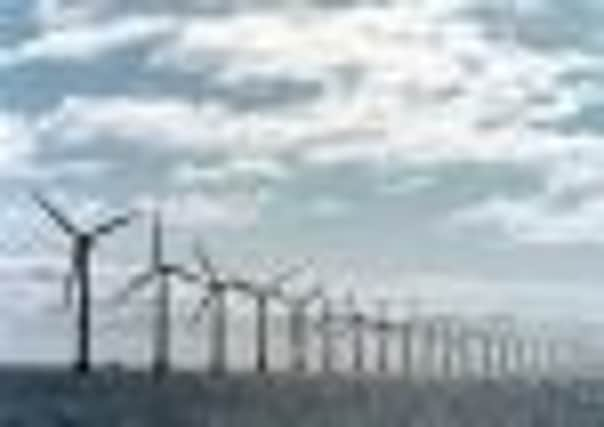Shale gas, not wind, is Scotland’s best energy source, says expert


Professor Jane Bower has criticised the Scottish Government’s focus on wind power, describing the cost of meeting its target of generating the equivalent of 100 per cent of electricity from renewable sources by 2020 as making it “very impractical”.
In a submission to a renewable energy inquiry at the Scottish Parliament she questions the SNP ambition to turn Scotland into an exporter of wind power, arguing that Denmark now has to export most of its wind power at a loss.
Advertisement
Hide AdAdvertisement
Hide AdEnvironmental organisations and enterprise groups criticised Professor Bower’s views and questioned her claims, while the SNP dismissed her concerns.
The Scottish Parliament’s Economy, Energy and Tourism Committee is holding a renewable energy inquiry to examine the achievability of the Scottish Government’s renewable energy targets.
Prof Bower said in her submission: “There is now a real possibility that Scotland may become independent. Why would an independent England (or any other country) buy expensive Scottish wind power when it could generate much cheaper electricity using shale gas, or import cheap nuclear from France?”
The academic, who is vice convenor for the Association for the Protection of Rural Scotland and was until recently Professor of Enterprise Management at Dundee University, says: “One of the problems of the current, headlong dash for an antiquated and inefficient technology, wind turbines, is that we will have such a surplus of wind capacity by 2020 that we will be very expensively oversupplied for many years.
“We would be unable to take advantage of the many new technologies such as tidal power which are currently under development.”
She suggests Scotland should turn its attention to shale gas extraction, a process of extracting natural gas from shale using the controversial technique known as fracking, instead of wind power, which is likely to see its costs “rapidly escalate year by year”.
Prof Bower points out that large reserves of shale gas have been discovered in England and she thinks it likely similarly large reserves will be found in Scotland. In America, she highlights, it is now providing a cheap supply of energy, and she says “replacing coal-fired with gas-fired is an easy way to halve CO2 emissions”.
“The Scottish Government’s energy policy needs to be revisited in the light of the changing situation,” she said.
Advertisement
Hide AdAdvertisement
Hide Ad“Energy experts are now predicting that shale gas, which has revolutionised the US energy situation, will become a major potential source of energy in many other countries, including the UK.
“The likely costs and difficulties of meeting the Scottish Government’s targets make the current policies very impractical.”
However, Niall Stuart, chief executive of Scottish Renewables, said: “Her view on shale gas would mean simply sticking our heads in the sand and failing to face up to the economic, environmental and moral imperative to reduce our carbon emissions and tackle climate change.”
In response to her claims that Denmark was having to export its wind power at a loss, he pointed out that the Danish government was continuing to plan to expand its wind sector.
“It’s a major part of their economy and a major part of their energy mix,” he said. “Rather than being a problem, they have got ambitions to grow dramatically over the next eight years.”
Greenpeace UK policy director Doug Parr said he was not aware of any analysis that showed Denmark was exporting its wind power at a loss.
“At times the money that is paid for wind will be quite low and at other times it will be quite high,” he said. “It depends what other generation is available and what other demand is available.”
He thinks Scotland is going in the right direction in pursuing wind power and aiming to export surplus electricity from renewables. In contrast, he said there was evidence that shale gas exploration might be environmentally damaging, releasing large amounts of the greenhouse gas methane on extraction, and there was no evidence that shale gas exploration would have a big impact in the UK.
Advertisement
Hide AdAdvertisement
Hide Ad“The proposition that Scotland should change policy on the basis of something that might never happen and might be environmentally damaging seems to be faintly ridiculous,” he said.
A spokesman for Scottish Enterprise also threw his support behind Scotland’s plans, saying wind power could “transform Scotland’s economy with the potential to create 28,000 jobs and generate over £7 billion by 2020”.
Global energy companies including Mitsubishi, Samsung and Gamesa have all recognised this potential and are already investing here.
A Scottish Government spokesman said: “Scotland produces 40 per cent of the UK’s renewable electricity and with the continued investment we are witnessing, Scotland’s energy will continue to be used across the UK and Europe in all future constitutional circumstances, including independence.
“The Scottish Government’s renewables targets will be delivered through a wide range of technologies.”